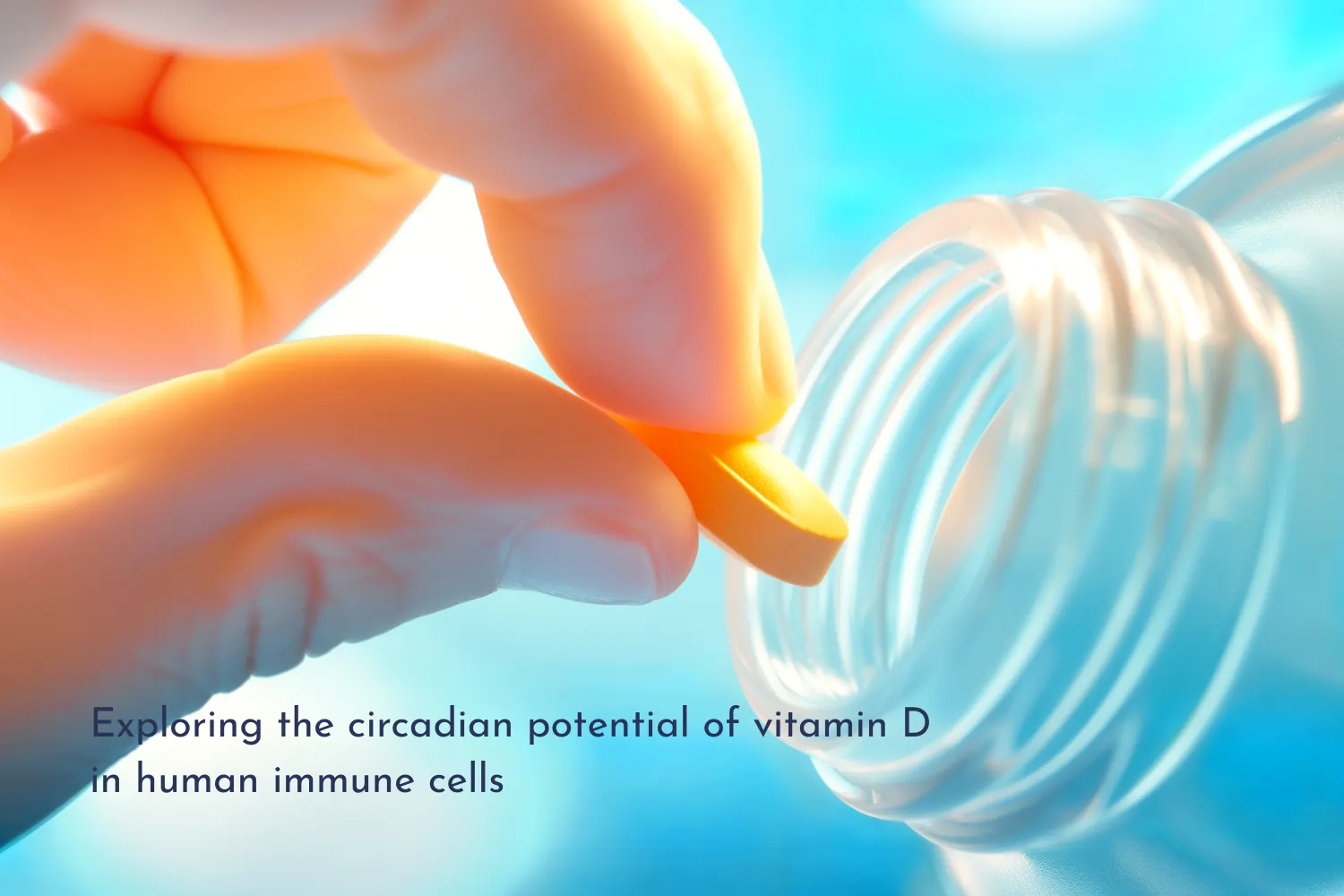Vitamin D plays a crucial role in the functioning of the immune system – supporting both innate (basic) and adaptive (highly specific) immunity. An international research team from the Institute has conducted a study showing that vitamin D can influence the activation of genes involved in antioxidant defense and detoxification mechanisms in immune cells – within just a few hours after supplementation.
The latest research findings by scientists from the Nutrigenomics Team – Prof. Carsten Carlberg and Tanya Tripathi – have been published in the scientific journal Frontiers in Immunology under the title:
“Early in vivo target genes in human immune cells highlight vitamin D’s role in antioxidant defense.”
The study suggests that vitamin D may play a key role in maintaining the redox balance (oxidation-reduction) in the bodies of healthy individuals.
Study objective
The aim of the research was to determine how quickly changes in gene expression occur in peripheral blood mononuclear cells (PBMCs) – a type of immune cell – after administration of a monthly dose of vitamin D₃. Samples were collected from a healthy volunteer at 4, 24, and 48 hours post-intake. The results were compared with previous in vitro studies conducted on PBMCs from the same individual. The analysis revealed that as early as 4 hours after administration, genes associated with protection against oxidative stress and detoxification processes were activated.
More than bone health
Vitamin D₃ is an essential micronutrient. It can be synthesized in the skin upon exposure to UV-B radiation or obtained through diet and supplements. While it is best known for its role in maintaining calcium balance and supporting healthy bones, growing evidence indicates that vitamin D also significantly influences immune function. It helps the body combat infections (such as tuberculosis or COVID-19) and, at the same time, prevents excessive immune responses, thus reducing the risk of autoimmune diseases (e.g., multiple sclerosis).
Read the full article here.
—
Prof. Carsten Carlberg is a world-renowned biochemist specializing in vitamin D research. He leads a nutrigenomics research group at the Institute of Animal Reproduction and Food Research of the Polish Academy of Sciences in Olsztyn, established under the ERA Chair WELCOME2 project (Horizon 2020).
Tanya Tripathi holds a Master’s in Computational and Integrative Sciences from Jawaharlal Nehru University. She specializes in immunology and molecular medicine. In the WELCOME2 project, she analyzes RNA sequencing data from human immune cells in a vitamin D study.






